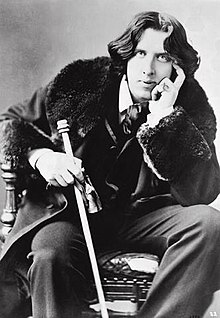Happy Easter! Today we spotlight the poem Easter Day, by Oscar Wilde.
Oscar Fingal O'Flahertie Wills Wilde (October 16, 1854 – November 30, 1900) was an Irish poet, author and playwright. He was born of professional and literary parents. His father, Sir William Wilde, was Ireland’s leading ear and eye surgeon, who also published books on archaeology, folklore, and the satirist Jonathan Swift. His mother wrote under the name Speranza, and was a revolutionary poet and an authority on Celtic myth and folklore.
Wilde is remembered for his epigrams, his novel The Picture of Dorian Gray and his plays. After writing in different forms throughout the 1880s, he became one of London's most popular playwrights in the early 1890s. His last work, The Ballad of Reading Gaol (1898), is a long poem commemorating the harsh rhythms of prison life. It is reported that Oscar Wilde died destitute in Paris at the age of 46.
Easter Day
By Oscar Wilde
The silver trumpets rang across the Dome:
The people knelt upon the ground with awe:
And borne upon the necks of men I saw,
Like some great God, the Holy Lord of Rome.
Priest-like, he wore a robe more white than foam,
And, king-like, swathed himself in royal red,
Three crowns of gold rose high upon his head:
In splendour and in light the Pope passed home.
My heart stole back across wide wastes of years
To One who wandered by a lonely sea,
And sought in vain for any place of rest:
'Foxes have holes, and every bird its nest.
I, only I, must wander wearily,
And bruise my feet, and drink wine salt with tears.'

Comments
Post a Comment